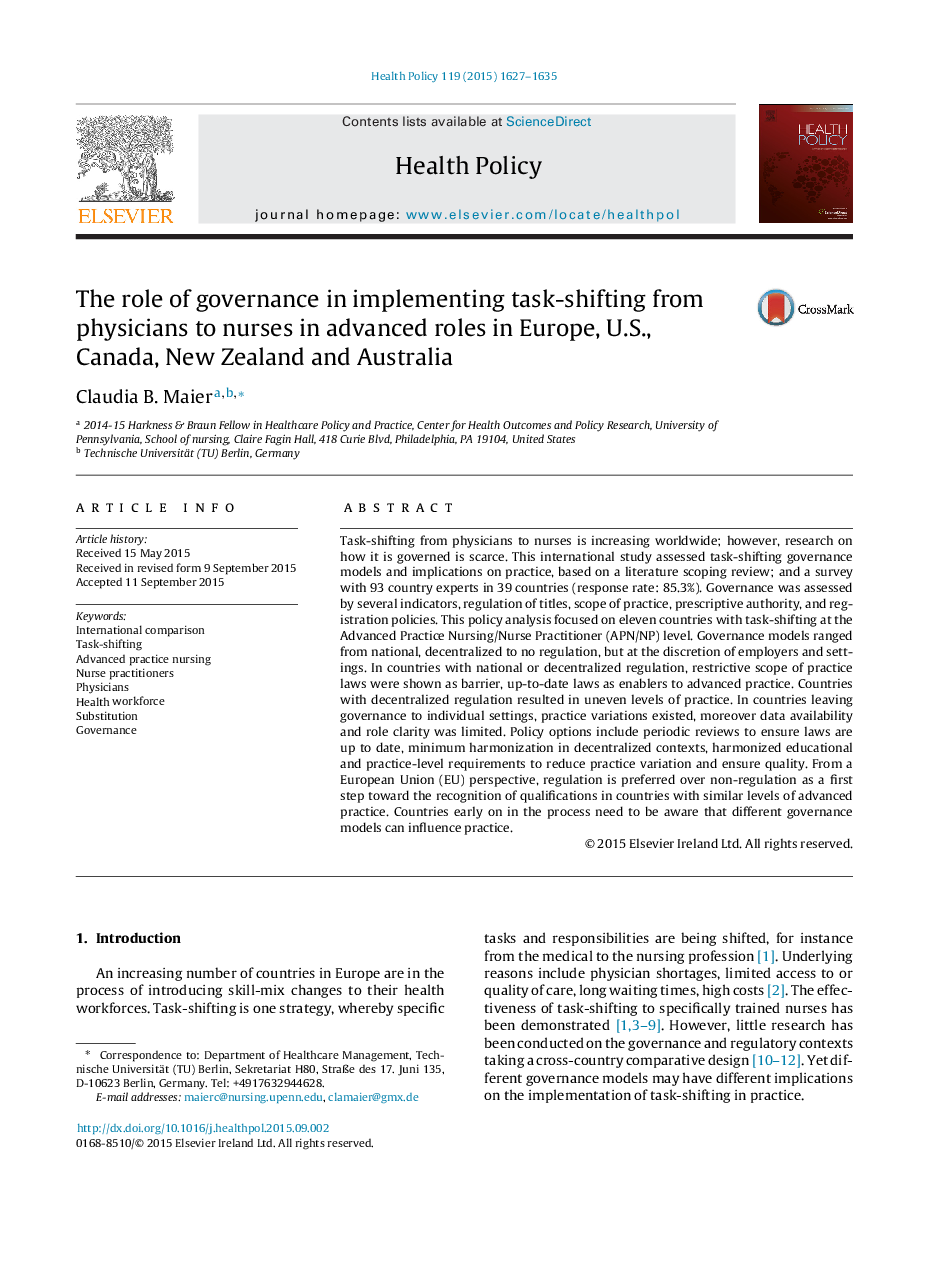| کد مقاله | کد نشریه | سال انتشار | مقاله انگلیسی | نسخه تمام متن |
|---|---|---|---|---|
| 6239064 | 1278984 | 2015 | 9 صفحه PDF | دانلود رایگان |
- Task-shifting is increasing, but research on how it is governed is scarce.
- Governance varies by country, ranging from national, decentralized, to no regulation.
- Locus of regulation can impact on practice, role clarity and data availability.
- Policy options include periodic reviews, updates and harmonization of laws.
- Organizational governance includes harmonized protocols and practice agreements.
Task-shifting from physicians to nurses is increasing worldwide; however, research on how it is governed is scarce. This international study assessed task-shifting governance models and implications on practice, based on a literature scoping review; and a survey with 93 country experts in 39 countries (response rate: 85.3%). Governance was assessed by several indicators, regulation of titles, scope of practice, prescriptive authority, and registration policies. This policy analysis focused on eleven countries with task-shifting at the Advanced Practice Nursing/Nurse Practitioner (APN/NP) level. Governance models ranged from national, decentralized to no regulation, but at the discretion of employers and settings. In countries with national or decentralized regulation, restrictive scope of practice laws were shown as barrier, up-to-date laws as enablers to advanced practice. Countries with decentralized regulation resulted in uneven levels of practice. In countries leaving governance to individual settings, practice variations existed, moreover data availability and role clarity was limited. Policy options include periodic reviews to ensure laws are up to date, minimum harmonization in decentralized contexts, harmonized educational and practice-level requirements to reduce practice variation and ensure quality. From a European Union (EU) perspective, regulation is preferred over non-regulation as a first step toward the recognition of qualifications in countries with similar levels of advanced practice. Countries early on in the process need to be aware that different governance models can influence practice.
Journal: Health Policy - Volume 119, Issue 12, December 2015, Pages 1627-1635
